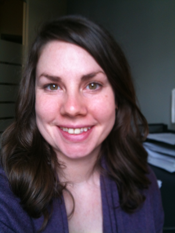For a program that is delivered completely online, each course was organized and delivered very well. Most of the instructors were very quick with their replies to questions from students. All of the courses used practical examples to explain the material which I found really helpful for understanding how to apply the concepts in practice. In the Working with Administrative Data (PHDA 01) course, the instructors were extremely helpful, and I found the 15 minute phone meeting near the start of the course really nice. It was so much easier to go through several questions/concerns at once on the phone with person rather than through several online posts.
The PHDA 03 course involved a lot of work, but was structured in a way that it was easy to work through each module. The instructor provided step by step instructions for each module about how to use ArcGIS. By the end of the course, I went from someone with zero experience in GIS to someone who can understand how to interpret maps, basic tools in ArcGIS, and how to apply GIS to public health issues.
I went into the program with few expectations, and wasn’t sure how challenging the courses would be. I was initially surprised, but then thankful, that all of the courses were very comparable to graduate level studies. Even though each course required a bit more work and time commitment than I initially planned for, I felt each of them challenged me and taught me new concepts and skills that I can take away and use immediately in my work.
